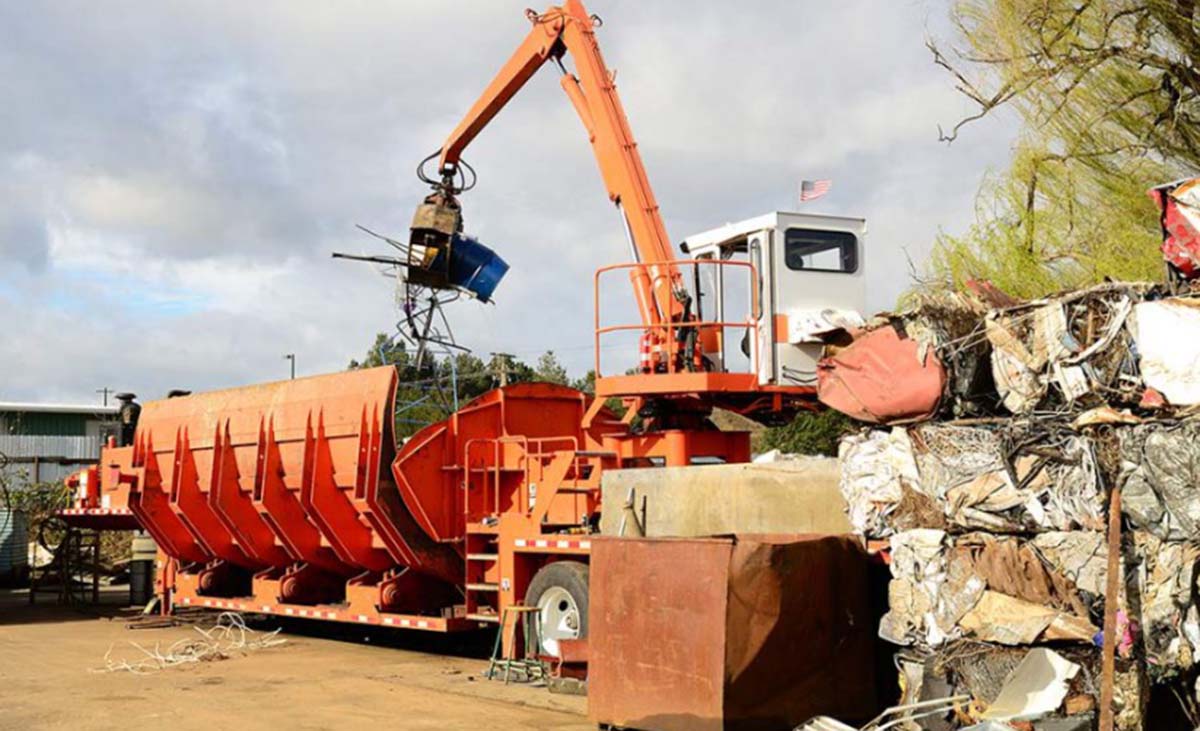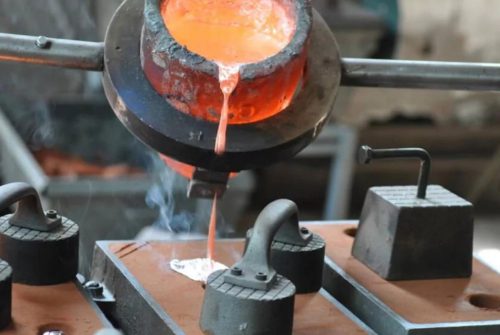
Metal balers, especially in their role in recycling operations, inadvertently contribute to creating safer outdoor environments. This multifaceted contribution impacts the immediate surroundings of recycling facilities and broader ecological systems.
Here’s how these machines are making outdoor spaces safer:
Reducing Hazardous Waste
Metal scraps, if left unprocessed, can pose significant environmental hazards. Sharp edges can cause injuries to wildlife and humans, while rust and other chemical substances can leach into the ground, contaminating soil and water sources.
Metal balers compress these scraps into safe, manageable bales, significantly reducing the risk of physical harm and chemical pollution.
Minimizing Fire Risks
Scrap metal piles can be fire hazards, especially when mixed with flammable materials like oils and plastics often found in automotive scraps. By compacting and segregating metals, balers reduce the likelihood of fires, which can cause air pollution and pose significant risks to human health and wildlife.
Furthermore, compacted metal bales are easier to manage and keep in designated, safer locations, away from fire-prone areas.
Improving Air Quality
Recycling metal using balers reduces the need to mine and process virgin materials, which are energy-intensive processes that release a significant amount of pollutants into the air.
By enhancing the efficiency of recycling operations, balers contribute to a decrease in these emissions, thereby improving air quality. Better air quality has direct health benefits for all living organisms and contributes to the overall well-being of ecological systems.
Supporting Wildlife Conservation
Improperly managed scrap metal can destroy habitats through direct physical damage or contaminating water sources that wildlife depends on. By ensuring that metal is quickly and efficiently processed and removed from the environment, balers help preserve natural habitats. This, in turn, supports biodiversity and helps maintain healthy ecosystems.
Encouraging Recycling and Sustainability
Using metal balers simplifies recycling, making it more economically viable and efficient. This encourages more businesses and communities to participate in recycling, reducing waste sent to landfills.
Landfills take up valuable land space and contribute to producing methane, a potent greenhouse gas. Thus, balers indirectly contribute to reducing greenhouse gas emissions by facilitating recycling.
Reducing Visual Pollution
Scrap metal can be an eyesore, contributing to visual pollution that affects the aesthetic value of natural landscapes and community spaces. By effectively managing and recycling scrap metal on-site, companies can avoid potential fines and penalties arising from improper waste disposal and demonstrate their commitment to environmental management.
Conclusion
Metal balers contribute significantly to creating safer outdoor environments through their crucial role in recycling operations. These machines play an indispensable role in environmental protection by reducing hazardous waste, minimizing fire risks, improving air quality, supporting wildlife conservation, encouraging recycling, and reducing visual pollution.
Their continued use and integration into waste management practices are essential for sustaining the health and safety of our planet’s ecosystems and human communities.




